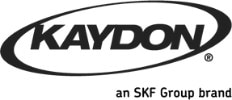
How Lead Generation Companies Drive Revenue
Ever wonder How Lead Generation Companies Drive Revenue Growth for Modern Businesses? Well, the Real Question is: Can Growth Be Engineered or Must It Be Discovered? Let’s continue reading to figure it out.
Think about the modern marketing dilemma we all agree with: how do we spark real growth when attention is fractured and buyers are more skeptical than ever?
The answer, increasingly, lies in the quiet precision of a specialized solution. Lead generation companies drive revenue not with luck or guesswork, but with strategy, data, and timing. And in a marketplace where every click either drives revenue or drains your budget, that difference can shape the trajectory of an entire business.
1. Lead Generation Companies Drive Revenue by Replacing Cold Outreach with Connection
It wasn’t long ago that businesses relied on cold calls and mass mailers to find leads. But in today’s digital-first economy, that old playbook simply doesn’t play anymore. Lead generation companies drive revenue by shifting the approach from interruption to intention, crafting campaigns that magnetize, not chase.
Through strategic inbound marketing, personalized content, SEO, PPC, and lead scoring systems, these firms build a funnel where a spark of interest leads to real engagement and measurable results. In fact, according to a HubSpot study, companies that excel at lead nurturing generate 50% more sales-ready leads at a 33% lower cost.
That’s not just smarter marketing—it’s scalable growth.
2. Lead Generation Agency Boost ROI by Understanding Buyer Behavior
Here’s the truth: people don’t buy when you want them to, they buy when they’re ready. And lead generation companies drive revenue by mapping out that buyer’s journey with uncanny precision.
Using tools like
- CRM analytics
- Intent data
- Behavior tracking
They identify patterns in lead interaction—what’s being clicked, read, or ignored. From there, they create segmented campaigns that speak directly to those signals. The result? Messaging that lands exactly when the prospect needs to hear it, increasing both open rates and ROI.
Even better, these insights aren’t just reactive, they’re predictive, empowering businesses to stay three steps ahead of their competition.
3. Partnerships with Lead Generation Companies Also Drive Revenue in Niche Markets
Niche markets are improvisational, nuanced, and tricky to master without the right partner. That’s why for specialized industries like healthcare, tech, or manufacturing, lead generation companies drive revenue by offering deep industry expertise and customized targeting strategies.
They not only understand the compliance hurdles or the buyer personas, but also the often lengthy decision cycles. Instead of using one-size-fits-all tactics, they tailor everything, from content topics to ad channels, to speak the language of the audience. In turn, these high-value leads convert at significantly higher rates.
In fact, Demand Gen Report found that 47% of B2B buyers consume three to five pieces of content before engaging with a sales rep, and great lead gen firms make sure every one of those touchpoints delivers.
4. Lead Generation Companies Drive Revenue Without Burning Out Your Sales Team
Let’s be honest: sales teams are often stretched thin. They’re expected to prospect, qualify, pitch, and close, all while juggling CRM updates and internal meetings. But lead generation companies drive revenue by taking the heaviest burden, finding and nurturing qualified leads, off their shoulders.
This enables sales reps to focus on what they do best: closing. No more dead-end leads, wasted demos, or one-size-fits-all sales scripts. Instead, they’re handed warm, engaged prospects who already understand the value.
As a result, this alignment between marketing and sales doesn’t just boost morale—it improves conversion rates, shortens the sales cycle, and ultimately, drives more revenue without the burnout.
5. Revenue Generation by Turning Strategy Into Growth
Growth doesn’t happen by accident, it’s engineered, optimized, and earned. And in an economy defined by rapid shifts and digital noise, lead generation companies drive revenue by offering clarity. They build systems that deliver not just more leads, but the right ones. Leads that convert, scale, and help your business grow with purpose.
So, whether you’re a startup looking to gain traction or an established brand ready to enter a new market, one thing remains clear: you don’t just need more prospects—you need a smarter way to reach them.
Summing Up:
Growth rarely announces itself with fanfare. It begins quietly, with better systems, clearer outreach, and sharper decisions. Lead generation companies understand this pace. They study the patterns, align with what matters, and keep businesses moving forward without the noise.
In the end, lead generation is more about fueling purposeful growth rather than just about filling your pipeline. The best lead generation companies drive revenue through strategy, insight, and alignment.
If growth feels uncertain, perhaps it’s time to partner with those who make it their business to generate it. Contact us today to explore how our AI digital marketing agency expertise can work for you.
FAQs
1. What’s the ROI of hiring a lead generation company?
While it depends on your industry and goals, most businesses see a 3x to 5x return on investment when working with an experienced lead generation partner due to higher quality leads and improved conversion rates.
2. Can lead generation companies help with B2B marketing?
Absolutely. In fact, many lead generation agencies specialize in B2B marketing by focusing on account-based strategies, LinkedIn outreach, whitepapers, and webinars designed to engage decision-makers.
3. How do I choose the right lead generation agency to drive revenue for my business?
Look for a partner that understands your industry, offers customized strategies (not templates), shares transparent metrics, and focuses on long-term results, not just quick wins.
Author: Momna Baig




















